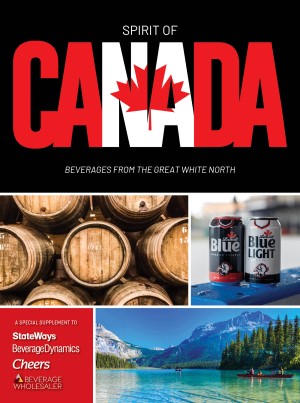Occasional in-house beverage tastings for wait staff are not uncommon anymore, but it’s rare to find such a commitment as that made by the management of Northern California’s Lark Creek Restaurant Group. The result is that Marin County’s Lark Creek Inn is known not just for chef Bradley Ogden’s cuisine and an extensive wine list, but also for its knowledgeable and engaging wait staff.
Staffers at Lark Creek Inn and sister restaurants One Market, Lark Creek Walnut Creek and Lark Creek San Mateo, are known to be passionate about their jobs and what they serve. That passion is at least partially due to the priority given to events like the annual tasting, where, this year, more than 100 wines were available for staff tasting, with the restaurant kicking in a top-notch buffet for the staffers to taste while sampling the wines.
But the annual event is only part of the continuing education routine at the Lark Creek Inn. Monthly seminars can cover still wines, champagne, dessert wines, brandy and ports. Additionally, they branch out to include tastings of oyster, greens, tomatoes or herbs.
“We provide a continual education program for our staff,” explains Rudy Rahbar, Lark Creek’s restaurant and wine manager. “We have monthly seminars to provide our servers not only with the education necessary to accurately describe what they serve to customers, but also the opportunity to have their own experience, and then be able to share that, too, with their customers.”
A recent wine seminar covered pinot noirs, beginning with a discussion on the varietal by John Hulihan, beverage director for the Lark Creek Restaurant Group. “We treat the seminar like a class,” says Rahbar.
“We distribute handouts at the beginning, and outline exactly what we plan to cover. We try to give them a basic knowledge about the subject, otherwise they’ll walk away knowing only about the specific wine they tasted that day. We also include maps so that the staff has a clear idea of the origin of what they are tasting.”
In the case of pinot noir, Hulihan discussed the different regions where the grape is grown in California and the different characteristic indigenous to those regions, and brought in supplier Tom Elliott of Northwest Wines. “He has an incredible wealth of knowledge,” says Rahbar. “He covered Oregon, the pinots produced there and the characteristics of those regions. We provided the staff with the relevant tastings throughout the seminar.”
“The tastings help comparison taste wines side by sides,” says Anne Skeffington, who has been with the Lark Creek Inn for five years. “I really depend a lot on my own tasting experiences, it becomes that much easier to match people with wine. Customers will tell you what wine they’ve enjoyed before, and if you’ve tasted it and know the characteristics of that wine, you recommend a wine that has the characteristics they enjoy. Also, based on your own experience from the wine and food tastings, you can also match the wine with the food they’ve ordered.”
“The experience they provide here is invaluable,” she observes. “You can’t truly understand the difference in wines unless you taste them, and then you are also able to understand the uniqueness of each wine you do taste. The annual tasting is a really good tool for us; wines change year to year, so the monthly tastings only supply you with the ability to understand the characteristics of different wines, but the annual tasting provides the experience of tasting that year’s release, which is invaluable.”
“This is a remarkable tasting opportunity,” observes Max Borinstein, general manger of Lark Creek San Mateo. “We can taste the wines on our own list, in addition to many other wines. It’s also a great opportunity to talk with the winery representatives, which is a whole different experience than reading about a wine. There’s so much more you can learn this way. It’s a great way for servers to create their own sound bytes to share with customers. Plus, the atmosphere is a relaxed, bucolic type of setting which puts people in a mood where they’re ready and willing to learn, and it’s really enjoyable for them.
“It’s very unusual that the restaurant is putting this on themselves,” he says. “They are able to approach an event like this with a much more expansive perspective, than the distributors or wineries–that of seeing how it can benefit the servers, instead of selling a product.”
Lark Creek’s overall wine education philosophy for servers and customers is two-tiered. First, make wine accessible. “No one question is to dumb to ask,” says Rahbar. “We put really down to earth information on the wine list, and make it approachable, understandable, and friendly — something to be enjoyed,” she says. “our wine-by-the-glass descriptions are the same. We don’t assume that anyone is an expert, so we talk to them on a very friendly level.”
Second, educate the staff by providing every resource. “It benefits the relationship between the customer and the server,” says Rahbar. “A server can use wine knowledge to boost the confidence of the table, and let the customer know they can be trusted.”
“I’ve been in this business 25 years,” Skeffington says, “and I’ve never worked for a group so professional. Working here as really increased my education. It really gives you more joy in your job, to be able to match the wine with both the food and the customer. Customers come to the Lark Creek Inn for a unique dining experience, and they deserve well-equipped servers.”
“Our professionalism is unseen,” says J.C. Falk. “The customer experience here is so smooth. That’s how we know we’re doing an excellent job.”
Anyone Can Do It
With careful planning, most restaurants can set up the right educational program for their your servers, says Rudy Rahbar, restaurant and wine manager of the Lark Creek Inn. Operators should place their educational emphasis on approachability.
First, Rahbar recommends evaluating the many available resources connected to the wines and spirits you already sell. Consider the distributors anxious to get into your establishment to sell their products. Rahbar suggests you invite them in to educate your staff about specific products. “The idea for our annual tasting came about from this very experience. There’s so much enthusiasm on the part of the distributors to educate. They’re more than happy to provide you with tasting notes and articles on their wines.”
Second, Rahbar recommends that beverage managers be prepared to explain to a staff why the time spent learning more about wine and spirits will help them. As Lark Creek server J.C. Falk says, “Having your own experiences with the wines makes you better equipped to sell them. Food and wine are both such a deeply personal experience–not an intellectual one, but a sensual experience. And that’s why I like this industry, there’s something providing a customer with an experience they’ve never tried before. And you can only do that if you’ve had the opportunity to experience those things for yourself. We are fortunate to be in an environment where we are constantly encouraged to expand our knowledge and be passionate about what we serve.”
Third, Rahbar recommends a method to reinforce the informational base servers develop, whatever educational aids you provide. In addition to the seminars and annual tasting at lark Creek Inn, she organizes an informal data base of 200 cards kept in a box at the wait station. Alphabetically organized, the cards list Lark Creek’s wines. “On the back of the cards are wine critic’s comments and reviews,” she says. “On the front are servers’ own comments and tasting notes. The staff is constantly referring to this box. It’s a great resource for them to have, and it’s great to see how they are committed to adding their own opinions and constantly updating the notes. If a customer orders a wine off the list of 300 that the server is not familiar with, they can refer to the tasting notes at the server station, and get back to the customer immediately on that wine.”
Rahbar also copies notes, reviews and articles for the staff to read about wines on their list. “You need to make everything available to the staff,” she remarks, “so that they begin to draw on their own knowledge.”
This approach obviously pays off. “Our staff sees the restaurant business as their career. They’re very committed to what they do,” says Rahbar. —PW




